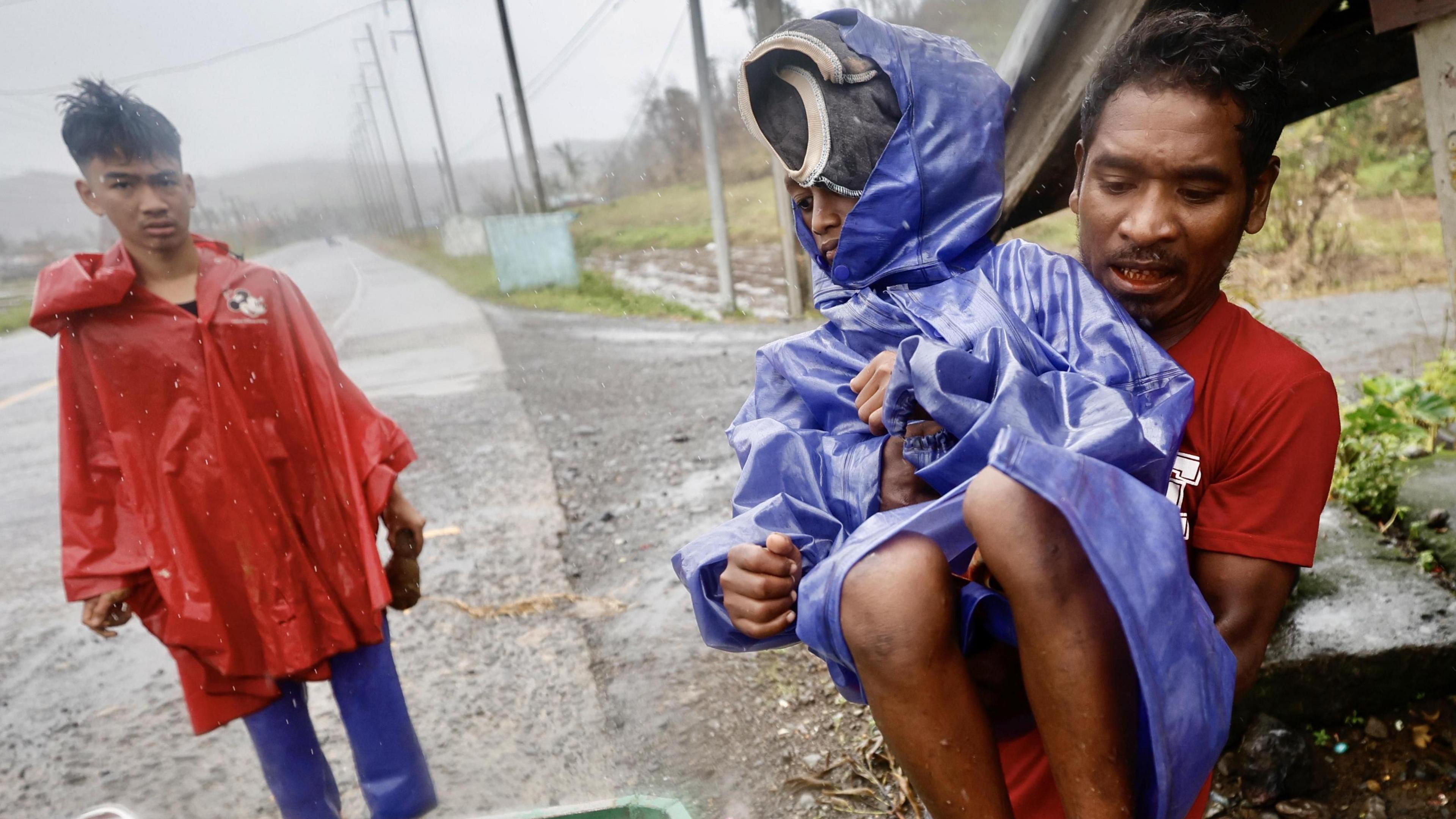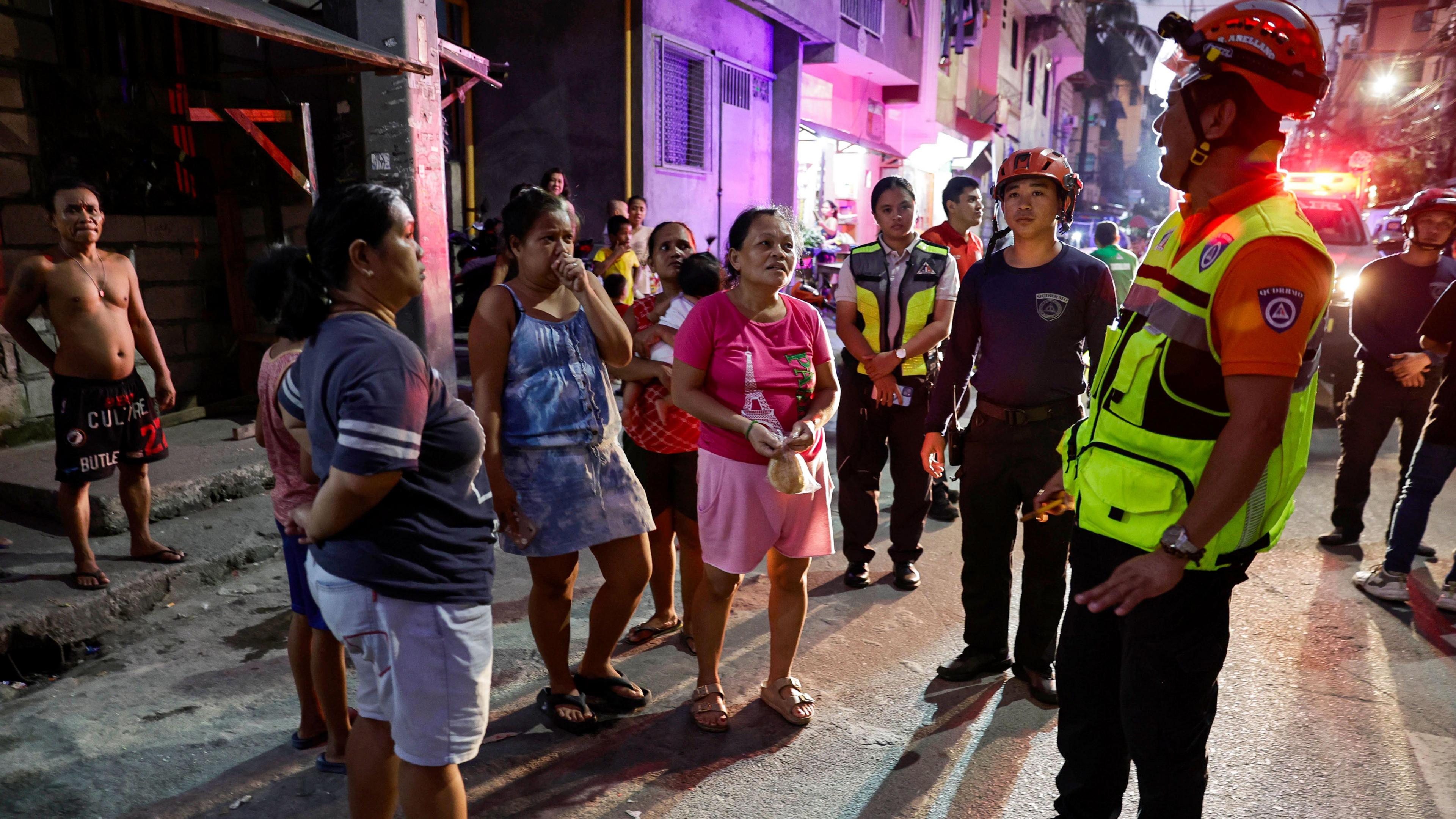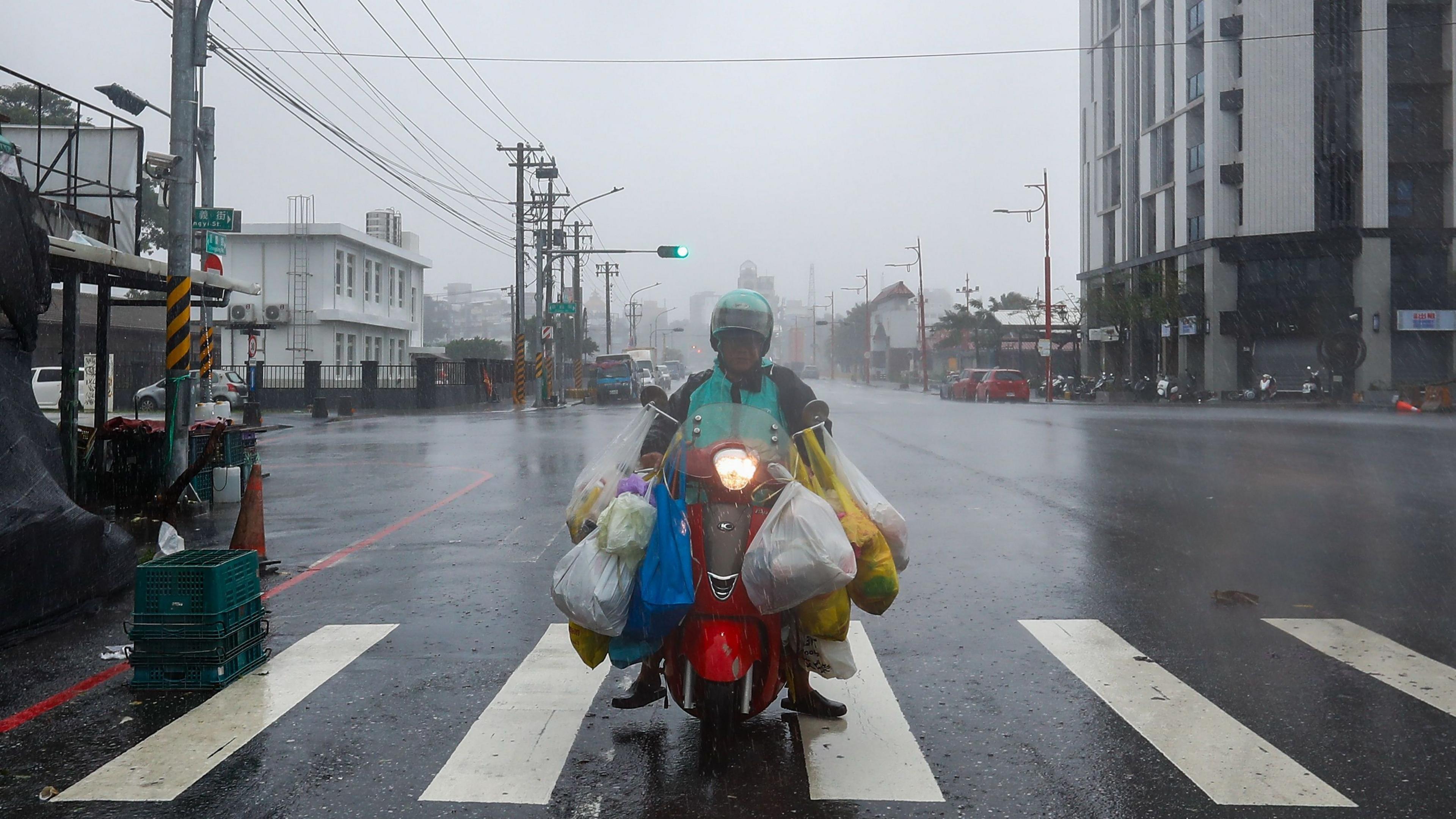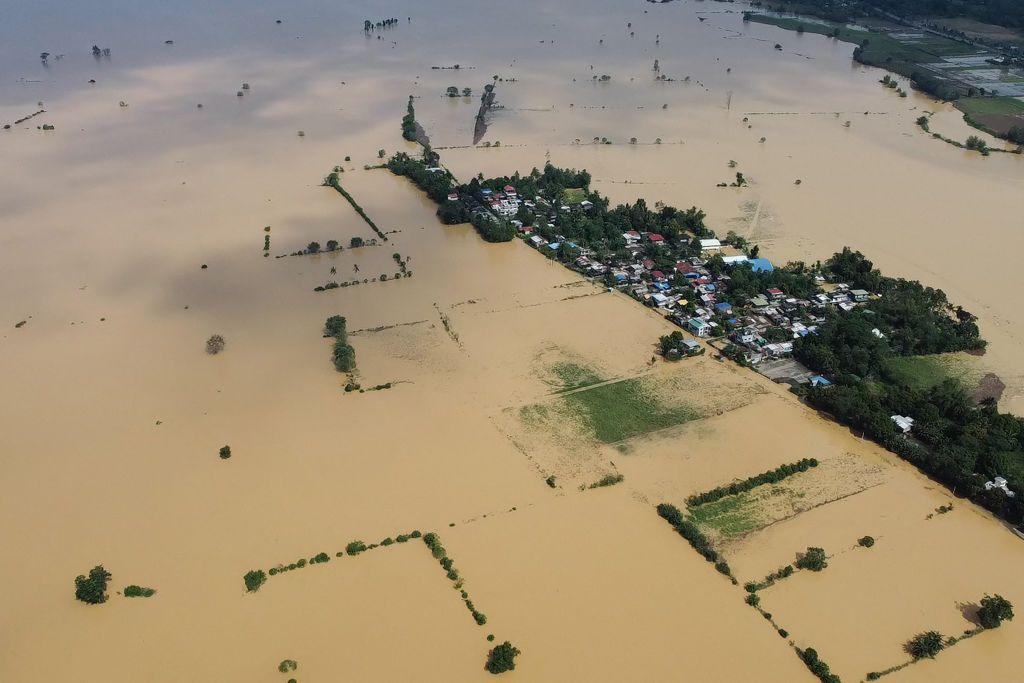Super typhoon Man-Yi makes landfall on Philippines main island
Weather worsens in Philippines as Super Typhoon Man-yi gets closer
- Published
A super typhoon has made second landfall on the Philippines' main island of Luzon, with forecasters warning of "life-threatening storm surge", heavy rains and severe winds.
Man-Yi, known locally as Pepito, first touched down on the country’s eastern Cantanduanes island at 21:40 local time (13:40 GMT) on Saturday, with maximum sustained wind speeds of 195 km/h (121mph), the state forecaster said.
More than a million people have been ordered to evacuate since warnings were first issued.
Man-Yi is the sixth typhoon to hit the Philippines in a month, with at least 160 people known to have died in the five previous storms.
The super typhoon already ripped through Cantanduanes, where it uprooted trees, damaged some buildings and pulled down power lines.
The storm did not lose any strength as it made landfall in the province of Aurora and began traversing the island of Luzon, the Philippines News Agency reported, with some gusts peaking at 305 km/h (189 mph).
Further widespread heavy rain from Man-Yi is forecast in northern areas of the main island, external. At least 200mm (7.8 inches) is expected to fall into Monday, leading to potentially "life-threatening" flooding and catastrophic mudslides, putting millions at risk from storm surges, the government said.
The country's capital Manila, where about 15 million people live, is not forecast to be in the typhoon's path.
Earlier on Sunday, dozens of flights were cancelled due to the incoming storm, according to local broadcaster ABS-CBN News.

People from the indigenous Aeta tribe evacuate ahead of the super typhoon

Residents from coastal areas take shelter on an evacuation centre in Legaspi City, Albay province on Saturday
More than 500,000 people heeded evacuation orders ahead of the storm, the civil defence said. Its head, Ariel Nepomuceno, urged everyone living in the storm's projected path to comply with these orders.
"It is more dangerous now for those in landslide-prone areas because the ground has been saturated by the consecutive typhoons," Mr Nepomuceno said.
Glenda Llamas was among those who had to leave their homes.
"We are terrified of the typhoon, as it may intensify and the waters can rise," she told the AFP news agency from a shelter in the eastern Luzon province of Albay on Saturday.
"If we didn't evacuate we wouldn't be able to get out later, we don't have anyone else in the house but us."
"We already have a lot of phobia due to the previous calamities that happened here like floods, strong winds and other disasters," said Melchor Bilay, who was evacuated to a school further south, in Sorsogon province.

Residents in areas that could be affected are being urged to obey evacuation orders
While typhoons are not uncommon in the Philippines, forecasters say it is unusual to see so many tropical storms in the Pacific at the same time during the month of November.
Tropical Storm Trami dumped one month's worth of rain over large swathes of the northern Philippines in late October, leaving dozens of people dead.
This was followed by Typhoon Kong-rey, in which at least three people were killed. It was also the biggest typhoon to directly hit Taiwan in nearly 30 years.
Typhoon Yinxing affected the north of the island of Luzon earlier this month, where it brought nearly 250mm (10in) of rain in some areas.
There has since been Typhoon Toraji and, earlier this week, Typhoon Usagi, which brought a three-metre storm surge and torrential rainfall exceeding 200mm (8 inches).
Storms in the Philippines have become more frequent and more intense, a problem greatly exacerbated by climate change.
The United Nations' climate change body, the IPCC, has said that while the number of tropical cyclones that happen globally is unlikely to increase due to a warning planet, it is "very likely" they will have higher rates of rainfall and reach higher top wind speeds.
This means a higher proportion would reach the most intense categories.
Related topics
- Published31 October 2024

- Attribution
- Published12 November 2024

